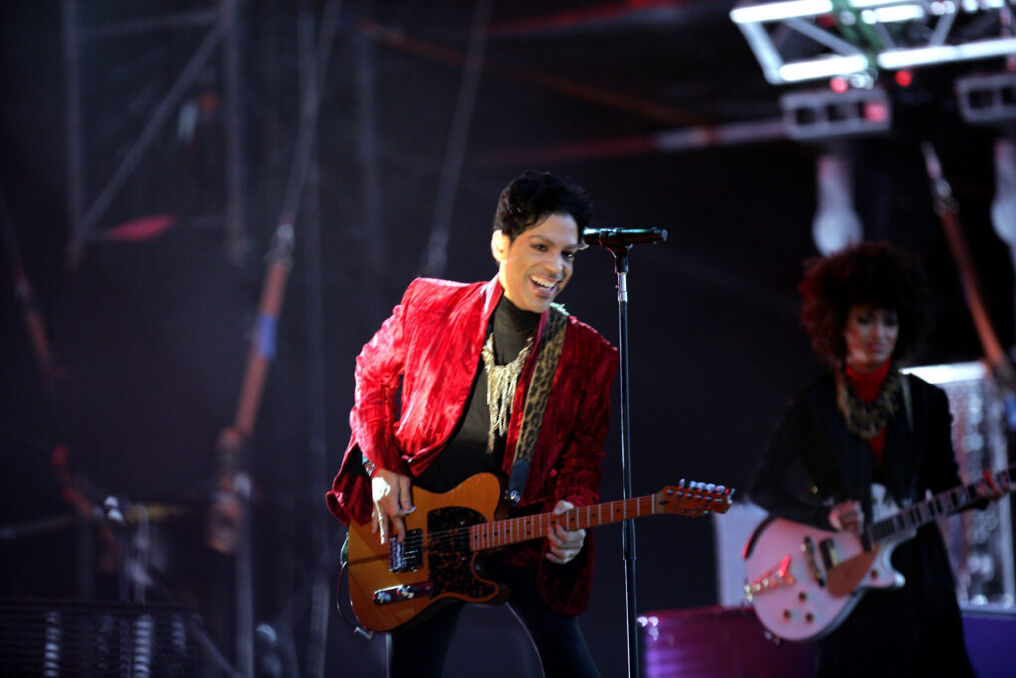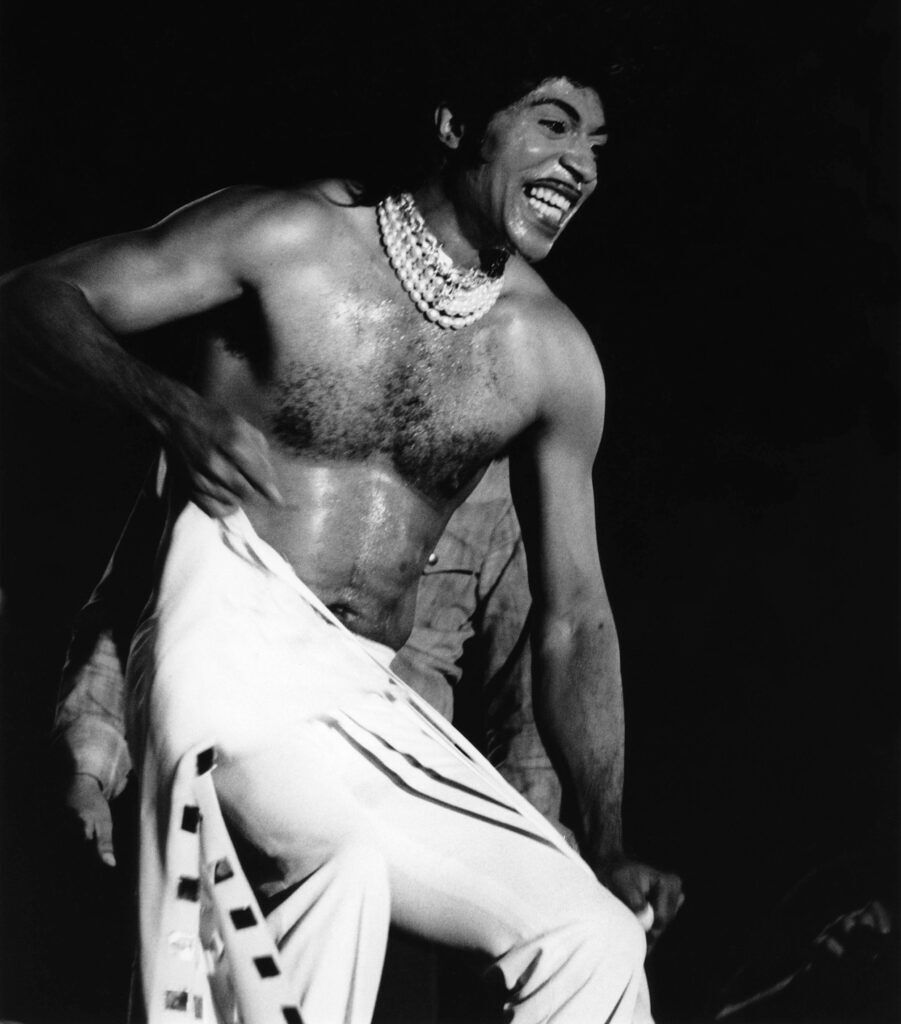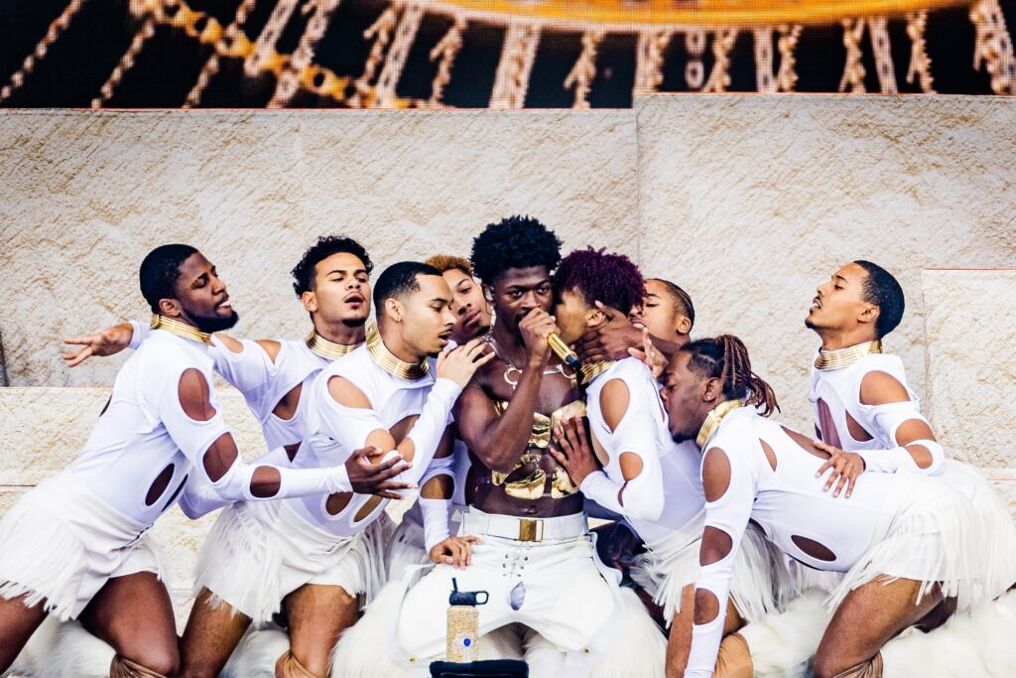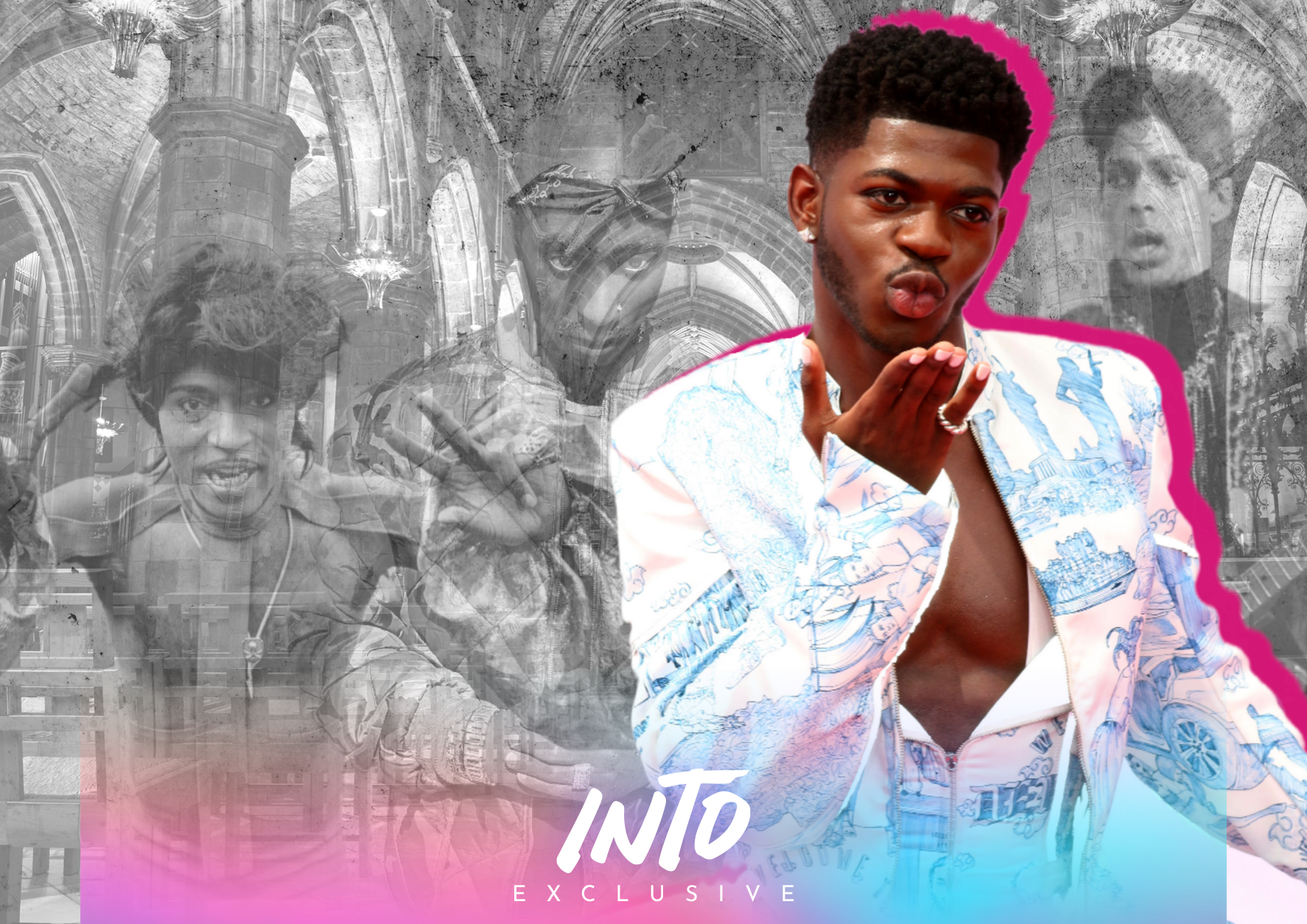“Some people think my music is dope. Some people see me as this satanic devil. But me? … ”
Lil Nas X leaves the question unanswered in the trailer for his new documentary, Long Live Montero. But fans and critics alike have plenty of thoughts in the aftermath of his latest single, “J Christ,” which included viral marketing that would probably make the Pope faint.
Lil Nas X’s recent string of TikToks — including videos of him chugging communion cups and lip-syncing in the streets to a Christian-themed track — divided the internet into two sharp categories: those who viewed the posts as comedic cultural commentary, and others who deemed the acts disrespectful. His acceptance to Liberty University (a cheeky publicity stunt), one of the most famous evangelical Christian institutions in the United States, only stoked the blasphemous fire. By the time the song’s cover art dropped, featuring Lil Nas X on the cross and scantily clad like Seville’s “sexy Jesus,” many shocked Christians were left rolling in their pews.
For some, the boundary-pushing artwork might be expected from the “Industry Baby” entertainer. It’s not like this fervor was unprecedented. “Montero (Call Me By Your Name)” sent Christians into a similar spiral as Lil Nas X descended to hell on a stripper pole in the music video. The song debuted at the top of Billboard’s and Rolling Stone’s Top 100. “J Christ,” meanwhile, peaked at number 69.
Culture, unfiltered
Twice a week, our newsletter will bring you the pulse of queer culture, from the tastemakers to the groundbreakers.
we did it boys! we reached the funny number. be very proud of yourselves. this is our moment! https://t.co/lI9FkdTspb
— ☆ (@LilNasX) January 23, 2024
While Lil Nas X could poke fun at the song’s sexually tinged landing spot on the Billboard charts, the 24-year-old’s response and apology to his “Christian era” backlash marked a stark contrast from the time he first emerged on the music scene a little more than five years ago.
“Lil Nas X has never shied away from playing dangerously close to the edge of hot topics, and after the release of ‘J Christ’ was the one time he did apologize,” Shana Sumers, co-host of the podcast Bad Queers, tells INTO. “On a recent episode, I questioned if this would be the time he backed away from the edge and tamed it down. Then I realized this is what folks have been trying to do to the LGBTQ+ community in non-queer settings, feeling we’ll be ‘too much.’ So to Lil Nas X, I say, ‘Keep being too much, and if that includes adding Christianity to your songs, do it.'”
In his video statement about “J Christ,” Lil Nas X disclosed that, when it came to Christianity, he didn’t “agree with all of Christianity’s rules.” But he clearly doesn’t believe in playing by them either, and many queer people feel the same.
“All too often, Christianity has been weaponized to subjugate Black and Brown people, women, and the LGBTQ+ community,” Bad Queers co-host Kris Chesson tells INTO. “If Lil Nas X wants to explore the hypocrisies that Christianity is filled with, he has my blessing and probably Jesus’ blessing, if we want to be honest. Jesus is more likely to hang out with Lil Nas X before many of these empty, Bible-thumping, profit-seeking people who consider themselves Christians.”
Jesus is more likely to hang out with Lil Nas X before many of these empty, Bible-thumping, profit-seeking people who consider themselves Christians.
Bad Queers co-host Kris Chesson
While many Christians don’t believe homosexuality is a sin, many evangelicals still think otherwise. The United States’ Black community has its roots tinged in Christian doctrine, dating back to slavery, when Christian missionaries strived to convert enslaved Black people. In the 1800s, the African Methodist Episcopa Church, the first Black Protestant denomination, was founded by Richard Allen, an enslaved Black man who purchased his freedom.
Since then, the Black church has been the birthplace for Black community building, job training, athletic clubs, and social movements. However, many of the religion’s ideologies (like homosexuality considered a sin) are weaponized against queer people within the Black community. Yet Lil Nas X uses that same Christian doctrine as a tool of reclamation because when the rules are already rigged against you, navigating them in any way you know how is intrinsic to being Black and queer in America.
Lil Nas X quickly reached popularity with Columbia Records’ 2019 re-release of “Old Town Road.” Two platinum records (7 and Montero), three No. 1 hits, and two Grammy Awards later, Lil Nas X seemed on top of the world. But the world has changed since then, especially considering Lil Nas X retired his Cowboy Carter-esque aesthetic for Christian iconography.
After coming out as queer on the last day of 2019’s Pride month and subsequently releasing one of the gayest songs in the pop canon, “Montero (Call Me By Your Name),” two years later, Lil Nas X shed his cowboy aesthetic for overtly queer imagery and theatrics. Not many recording artists can get away with a satanic lap dance music video, and while naysayers rose against Lil Nas X (including enraged Republican South Dakota Governor Kristi Noem — “We are in the fight for the soul of our nation.”), his efforts to push Christianity’s envelope paid off as he leveraged his experience with religion to challenge the cultural zeitgeist. While Lil Nas X has been making inroads as a music industry disrupter, he’s not the first to forge such a path.
From ‘Tutti Frutti’ to ‘Get Off’: How Little Richard and Prince queer-coded music

Lil Nas X isn’t the first entertainer to explore and confront the intersection of race, sexuality, gender, and religion. His music catalog challenges how fans engage with Christianity, but trailblazing predecessors also tackled the polarizing Christian doctrine.
Prince Rogers Nelson, better known simply as Prince, astounded listeners with his far-reaching falsetto, trademark screams, and multi-instrumentalist musical talent. This is most notably heard in songs like “When Doves Cry,” “Kiss,” and “Purple Rain,” to name a few. But it was his overtly sexual lyrics and androgynous image that shocked and awed the masses and continues to captivate generations of Black queer people.
While Prince’s 1978 debut single “Soft and Wet” was an indicator of what fans were getting themselves into, the lead single “I Wanna Be Your Lover” from his second self-titled album pushed him into mainstream success. Network executives deemed the song’s original video too explicit to be aired on TV due to the band’s scantily clad clothing and suggestive dance moves, opting for the music video we know today with Prince performing the song alone. But that was simply the precursor for what was to come.
Prince’s discography and image continued to evolve, flirting with more sexually explicit lyrics and imagery. His 1980 album Dirty Mind saw him lyrically pursue topics of gender-bending, cuckoldry, and voyeurism. He also navigated homophobia in the album’s lead single, “Uptown,” in which he shuts down a woman inquiring about his sexuality.
She said, ‘Are you gay? / Kinda took me by surprise, I didn’t know what to do / I just looked her in the eyes and I said, ‘No, are you?’
“Uptown” by Prince (1980)
Prince’s unapologetic demeanor and maximalist style, described by GQ as “fearlessly fluid,” included eyeliner, high heels, feathers, and leather and became a sexual awakening for many queer people. His appearance in seatless chaps at the 1991 MTV Video Music Awards became a flash of unapologetic rebellion.
However, the artist’s perspective shifted when he became a devout Jehovah’s Witness in the early 2000s. A more conservative Prince sprung forth, and so did interviews in which he lambasted homosexuality. Prince’s adoption of the Jehovah’s Witness doctrine complicated fans’ relationship to him in his latter years. His influence can still be traced to today’s hitmakers, including Janelle Monaé and Miguel, but rock-and-roll provocateur Little Richard may have had the most influence on Lil Nas X.
Born Richard Wayne Penniman, the ever-flamboyant Little Richard became one of rock and roll’s leading voices, if not the definitive voice of the genre. Hailing from Macon, Georgia, a young Little Richard changed rock and roll as we know it with the 1955 song “Tutti Frutti.” The energetic refrain of “a-wop-bop-a-loo-bop, a-lop-bam-boom!” is instantly recognizable, and yet many are unaware of its sexual reference.
Some claim that “Tutti Frutti, good booty / If it don’t fit, don’t force it / You can grease it, make it easy” was the original lyric. Little Richard’s drummer, Charles Connor, stated that the song’s first draft read, “Tutti Frutti, good booty / If it’s tight, it’s all right / And if it’s greasy, it makes it easy.” Either way, both allude to Little Richard’s familiarity with back-door action.

One of 12 children born to a church deacon, Little Richard was traumatized by his father’s disciplinary response to him being gay. His father kicked him out at 14 years old, after which he began performing professionally with the musical experience he gained singing gospel in Pentecostal churches. He had a brief stint performing in drag as Princess LaVonne in the 1940s and cultivated a penchant for wearing makeup before creating his breakout hit “Tutti Frutti” in 1957.
Little Richard would go on to leave an indelible mark on music history. Still, his career is marred by his struggles navigating Christianity and his sexuality, highlighted in the documentary Little Richard: I Am Everything. Having come out as gay, bisexual, and omnisexual on different occasions, Little Richard seemingly renounced his queerness as a born-again Christian on multiple occasions, including attending a seminary and stating in a 1982 interview with David Letterman that he acknowledged that he was gay, but that God “made Adam be with Eve, not Steve.”
The Jesus double standard
Whether or not they identified as queer, Prince and Little Richard were flamboyant trailblazers, and Lil Nas X’s artistry is built on their iridescent foundation. Their struggles at the intersection of Blackness, queerness, and Christianity are also his inheritance. Black queer artists like Lil Nas X leverage their connection to Christianity yet are vilified for doing so, while non-queer artists do the same without the backlash.
Rappers Tupac Shakur and Nas (not to be confused with Lil Nas X) also appeared as Jesus Christ: Shakur on the cover of his posthumous album, The Don Killuminati: The 7 Day Theory, and Nas portraying the crucifixion in his “Hate Me Now” music video.
In 2004, rapper Kanye West performed his smash hit “Jesus Walks,” a haunting rap song devoted to Christ being omnipresent in West’s life, at the BET Awards behind a pulpit with a choir and gospel singer Yolanda Adams. In 2005, West won a Grammy Award for Best Rap Song for “Jesus Walks,” and in 2006, he famously appeared on the cover of Rolling Stone dressed as Jesus with a crown of thorns adorning his head. These factors catapulted his profile so much that he could get away with calling himself “the new Jesus” in his 2024 song “Carnival.”
it’s crazy how the general public sees one of these as disrespectful but the other isn’t pic.twitter.com/WsTRiG0BD5
— major 𓅓 (@shotbymajor) March 19, 2024
Rapper DaBaby is probably more famous for his 2021 homophobic, misogynistic, and HIV-stigmatizing rant than for his music. However, before Jonathan Lyndale Kirk was known as DaBaby, he was known as Baby Jesus. He recorded several mixtapes and EPs referring to himself as such, including Back on My Baby Jesus Sh*t. Interestingly, the lyrics to his 2015 song, also called “Baby Jesus,” aren’t that different from those in Lil Nas X’s “J Christ,” yet no vitriol was sent his way for rapping them.
“B*tch, I think I’m Baby Jesus (Baby Jesus) / Yeah, but you can call me what you call me (F**k what they call me)” — “Baby Jesus” by DaBaby (2015)
“Back-back-back up out the gravesite / B*tch, I’m back like J Christ”
— “J Christ by Lil Nas X (2024)
Interestingly, queerness isn’t involved in these rappers’ projects. Instead, these artists position Christianity within heteronormative parameters, leaving room for critique and praise that has nothing to do with subverting norms connected to their sexuality. And Gen Z is noticing.

Research shows that, while Black Americans are the most religious racial group in the United States, Black Gen Z and millennials are less likely to identify with organized religion. Instead, these individuals are leaving religions like Christianity behind in favor of West African religions, like Ifa, and a broader definition of spirituality. Reasons vary, but many are doing so because the religion they were raised in no longer nurtures them or their identities.
“I do think Black queer folx can exist and thrive within Christianity, just as Black people and marginalized groups have continued to carve out room for themselves within religion and reclaim it,” Eshe Ukweli, journalist and editorial fellow at The 19th, tells INTO. “But for me, Christianity just had too many rules that felt like barriers between myself and the divine.”
“Since I was a child, I’ve always felt like there was something bigger than myself existing just beyond my eyes,” says Ekweli. “I’ve always felt connected to that, but as I started to come into my transness and become proud of who I am, I felt like the Christianity I was raised in — in all its southern, traditional African American cultural charm — did not possess enough room for all the beauty and free thinking of my identity.”
What differentiates Lil Nas X from the legends before him is his ability to navigate a religious system without losing himself to it. He creatively leverages Christian iconography and symbolism rather than perpetuating its harm by those seeking to politicize it.
“There are still parts of myself that I’m learning to accept,” says Lil Nas X. “But we’re getting closer.”
Related:
Lil Nas X bares it all in ‘Long Live Montero’ trailer
The first trailer to Lil Nas X’s documentary is here and shows a new side to the Gen Z rap sensation.
Featured image illustration by Matthew Wexler. Little Richard photo by Tim Graham/Evening Standard/Getty Images.
Editor’s note: Interview subjects Kris Chesson and Eshe Ukweli have a professional association with Q.Digital.
Help make sure LGBTQ+ stories are being told...
We can't rely on mainstream media to tell our stories. That's why we don't lock our articles behind a paywall. Will you support our mission with a contribution today?
Cancel anytime · Proudly LGBTQ+ owned and operated














